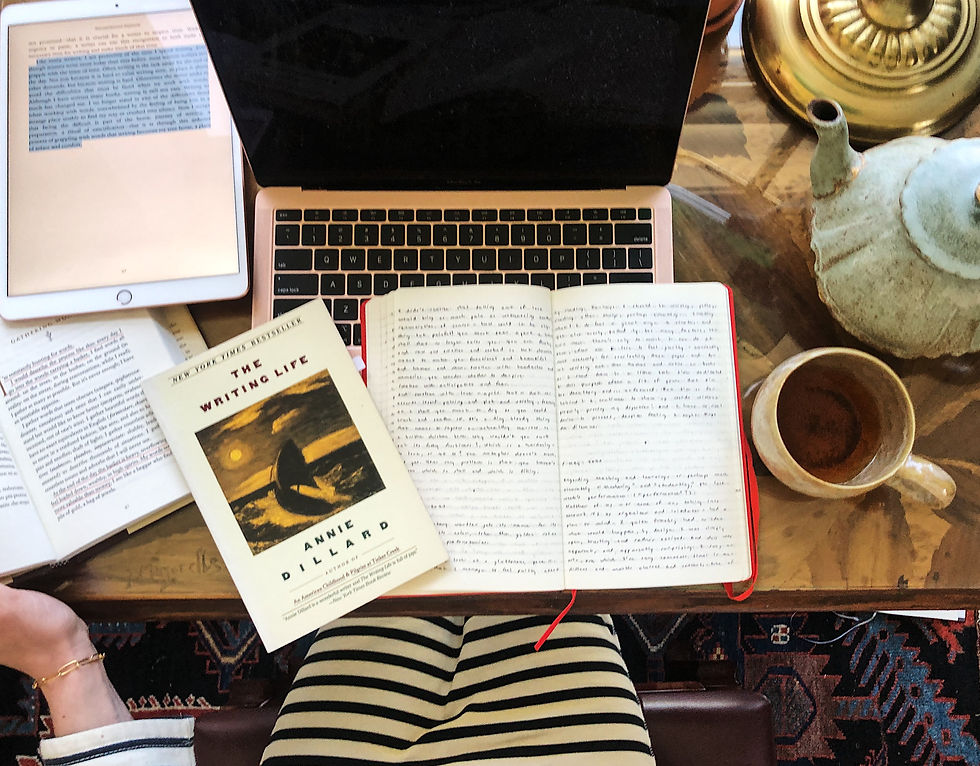Reflections on Learning
- sdelphis
- May 5, 2021
- 4 min read
Last week, I sang and spoke in A Sound of Teaching, organized by the artist Tim Simonds as part of the closing weekend of his solo exhibition Teachers Monarchs at the Brooklyn-based Cathouse Proper. The event, which took place live over Zoom, brought me together with Houman Harouni, a practice-based theorist and professor of education at Harvard, to perform a class of sorts. Houman isn’t a professional musician - in fact, by his own admission, he doesn’t know anything about music. So this wouldn’t be that cornerstone of performative learning, the public master class, in which a singer is coached through a piece by an experienced specialist in the field. He and I had never met; we had no pre-designed lesson plan or agenda. In fact, it wasn’t even clear who would be teaching and who would be taught. I quite frankly had no idea what would happen, by design.

Quickly, however, we did fall into a familiar master class rhythm. My only strategy before the event was to be receptive, open and trusting. This was apparent, and perhaps surprising, to my audience and counterpart. I performed an aria - the common showpiece “Nobles seigneurs, salut!” from Giacomo Meyerbeer’s 1836 historical opera Les Huguenots - which I’ve sung countless times in auditions, classes and concerts. Houman then reacted to it, within the limitations of what he knew of the piece: the text, as well as my short summary of the setting and the character. He began to ask me questions about my character’s motivation and background, about my thought process and what I hoped to achieve as a singer in the aria. Because he wasn’t performing in my medium, it didn’t feel like a joint musical collaboration of equals to create a piece together, as when I rehearse with duo partners. Without any particular prompting, I took on the role of enthusiastic student.
We talked through my performance decisions, and he proposed a different interpretation of the character, one less reliant on pleasing an audience and more centered around a hypothetical internal life. I earnestly dove in - why not? There was nothing dangerous physically or psychologically about entertaining a new approach, even one not specifically grounded in the “right” traditions of a work I knew better than he did, and I was happy to potentially discover a new facet of my piece or myself. Houman was surprised by my unquestioning willingness, and, in our subsequent question & answer session, I got the sense that our audience of primarily non-musicians was too.
As classical musicians in general and singers in particular, we're conditioned to accept authority. We’re asked to be diligent in our practice and loyal to our teachers, who occupy a space between therapist, mentor, religious figure and parent. We’re fed the necessary information - translations, historical context, performance practice, technique, style - by a slew of experts for years. (1) We must come prepared but flexible, that is, perfect enough to be further perfected, ready to completely change both minor and major aspects of our work at a moment’s notice. Ready and willing to be torn down and rebuilt, and grateful for the privilege of having been told we got it all wrong. (2)
Of course it’s often abusive, even more so when the potent forces of racism, sexism and classism are added to the toxic soup. Classical singers live in a world of hierarchy and roles, beyond the ones we put on for the stage. Even without the purposeful abuse of power that’s rampant in the industry, unequal dynamics are easily inherent to an art form built upon learning a highly specialized technique from a lineage of revered experts. (3) It’s a craft still operating with an apprenticeship model, while attempting to streamline and globalize (usually not terribly successfully). So much of our early training and later professional experience centers on “getting it right” according to the hegemonic and unchanging rules of the genre, the expectations of others, that we’re not pushed to cultivate a healthy sense of personal opinion, boundaries and self until much later, if at all. These are rights reserved to those of us who have earned them through pristine mimicry.
Many of us react to the constrictions of a lifetime of tiers by over-asserting our egos, overstating our culture and bonafides. These are many of our colleagues, the difficult ones, the stubborn ones. The ones who aren’t work-brittle. These are also some of our more abusive coaches and teachers and directors, who don’t trust people below them in the influence pyramid to bring a useful perspective into their hermetic, “perfected” interpretation.
We’re warned not to be unlikeable. This is exponentially more fraught for singers who aren’t white, the very merit of whose existence and authority in classical music is constantly called into question and undermined. It’s constantly repeated to women: we’re plentiful and replaceable, and not special enough to be difficult. (4)
Those of us passionate about music qua music, or even just work and industriousness, take this all to heart. Who wants to be a pompous, rigid ignoramus? And so we have to discover and shape the space, dynamic and changing, between stolidity and feeling, tradition and personality, receptiveness and subservience.
Notes:
You’ll notice the prevalence of the passive voice here.
“You can make any mistake… Once.”
A diva, let’s not forget, is a goddess. Her male counterpart, the divo, hasn't made it into pop songs and common English terminology, however.
Again, the boundary between “difficult” and “assertive” is a blurry and highly political one.



Comments